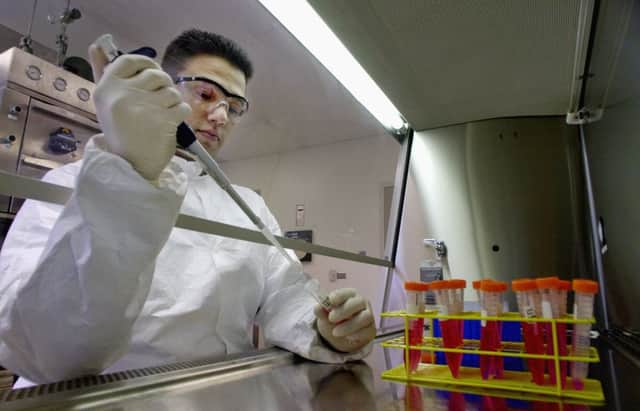Human beings can now be edited '¦ but we may not like the results


But changing your appearance or becoming more intelligent would not transform you into a completely new person. We would not mourn your death if your appearance changed. And it would be odd to celebrate the birth of a new person if you increased your IQ score. You are the same person now as you were when you were a child, even though your physical and psychological traits have changed.
Yet there is only so much change a person can undergo before he or she ceases to be who they once were.
Advertisement
Hide AdAdvertisement
Hide AdFor example, it is not implausible to suggest, from a philosophical perspective, that someone with severe dementia which completely transforms his or her character is not the same person he or she used to be when he or she was healthy.
And if a person’s genes were edited to such an extent that he or she became a different biological organism, it is open to debate as to whether that person would survive the procedure.
Although it is not currently feasible to bring about such drastic changes to a person through genetic engineering, it is now possible to edit the human genome: the entire genetic heritage of a person. Last year, a group of Chinese scientists used a new genome editing technology, CrispR/Cas9, on human embryos to successfully switch out a mutated gene responsible for a hereditary blood disorder.
Gene editing technology is still in its infancy and the long-term effects of modifying the genetic make-up of human embryos is still unknown. But once technology is further developed and scientists better understand how genes interact with each other and the environment to express certain traits, it is conceivable that geneticists will be able to make changes to the genetic make-up of a person which will affect the very core of who that person is.
Intuitively, it will be easier to make such identity-affecting modifications using genome editing technologies on human embryos rather than on human adults. Most changes to the genetic make-up of an embryo will be identity affecting because the changes themselves will fundamentally shape the identity of the person that the embryo will develop into.
To make an analogy, if you change the design of a house right at the beginning of the building work, you will end up with a significantly different house than the one that would have existed had you stuck to the original design. So any time an embryo is genetically modified, we should ask whether the embryo has merely been modified or whether it has actually been transformed into an entirely different embryo. This is literally a matter of life and death when talking about embryos since the original one would no longer exist; and this is the crux of why so many people find human genome editing morally objectionable.
Human adults, on the other hand, are already fully developed organisms with a robust sense of self. So the extent of genetic modification that is needed to affect the identity of a human adult is likely to be much greater than that of a human embryo.
Staying with the earlier analogy, redeveloping a house once it has already been built will not normally transform it into a completely different house. To call it a different house, the original will likely need to be demolished and a new house built in its place.
Advertisement
Hide AdAdvertisement
Hide AdBut genome editing can be a matter of life and death for adults as well. It is just that adults can survive much more genetic modification than embryos while remaining the same person. Adults would only cease to exist as the persons they are if they experience a transformation similar in magnitude to that of someone who was once healthy but now suffers from severe dementia. Although theoretically possible, such a change brought about by genetic modification is unlikely and extreme.
Of course, there are other reasons people oppose genome editing. Editing the human germline (the genetic material that is passed on to future generations) also opens up the possibility of creating an entirely new species. This may threaten our way of life and even our very existence as human beings. How salient these concerns about editing the human germline are is currently a matter of speculation. But what is clear now is that genome editing technologies could potentially change our identity as individuals and as a species in profound and fundamental ways.
Thomas Garnham, Research Associate with the Scottish Council on Human Bioethics, www.schb.org.uk